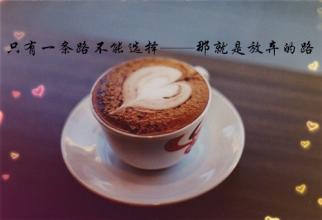Introduction to the flavor description method of Starbucks Uganda boutique coffee beans
Ugandan coffee beans
Over the past half a century, the prices of primary products on the world market have been declining, and the incomes of farmers in developing countries have been deteriorating. Take coffee as an example. In Asia, Africa, Latin America and other places, there are 20 million to 25 million farmers and growers directly engaged in the coffee industry, and coffee export income is directly related to their survival. But in recent years, although the retail price of coffee products has not changed significantly, in fact, the price of coffee beans in the world market has fallen to the lowest point in 40 years, causing many small and medium-sized coffee farmers to get into trouble. In the UK, a 100-gram bottle of instant coffee retails for about 22 yuan, but Ugandan farmers who produce coffee beans actually get only 30 cents, accounting for only 1.4% of the retail price. In 1997, 13 European countries, including Britain, France, Germany and Belgium, and fair trade organizations from the United States, Canada, Japan and other countries jointly established the International Fair Trade labeling Organization (FLO), headquartered in Bonn, Germany. In order to facilitate consumers to identify and conduct cross-border trade, the organization decided in 2002 to launch a unified global "fair trade" logo.
Coffee is the first product to be labeled "Fair Trade", and coffee farmers get real benefits from it. Chilean FLO producers sold coffee beans last year for $1.26 a pound, compared with 47.35 cents a pound on the New York futures market. However, FLO does not buy products directly, but mobilizes big companies to join by promoting the "Fairtrade" logo. Fair Trade has held several promotional events in front of Starbucks coffee shops, and members of FLO held pictures of coffee farmers working hard to tell coffee drinkers that "a coffee farmer who works hard to sell a kilogram of coffee beans earns much less than our coffee shop earns a cup of Italian coffee." Members of FLO also put up slogans saying, "taste the taste of fairness" to introduce coffee with the "Fairtrade" logo to consumers. Many people immediately left Starbucks to buy Fairtrade coffee and take it away. Simon, head of products at FLO in France, once said, "if consumers understand that every bag of Fairtrade coffee they buy is helping a coffee grower, I think many consumers will not hesitate to spend a little more money." Under this publicity campaign, Starbucks has also joined the Fairtrade campaign, buying products from qualified producers at the purchase price set by FLO every year, selling them in stores with the "Fairtrade" logo after processing, and paying fees for the use of the logo to FLO. )

Important Notice :
前街咖啡 FrontStreet Coffee has moved to new addredd:
FrontStreet Coffee Address: 315,Donghua East Road,GuangZhou
Tel:020 38364473
- Prev

Ethiopian Sidamo Lion King Coffee Flavor description treatment Variety characteristics Grinding degree
Ethiopian coffee 1. After picking beans without special screening and treatment, uneven appearance and maturity are mixed together, the process is relatively rough, so the quality of coffee beans is unstable and prone to defective beans. two。 Coffee farmers usually find an open space near their home to deal with it, so there are often a lot of impurities or dirt on the ground, and coffee is easy to get smelly. Change
- Next

Introduction to the method of describing the Price and Flavor of Rosa Coffee in Jade Manor of Panama
Jade Manor Rose Summer Coffee Flavor description [Flavor description]: oolong tea, peach, honey, fresh and comfortable, bright and balanced, strong hierarchical aroma, the whole aroma and caramel sweetness are wrapped together, the tip of the tongue feels sour, mild and round in the mouth, sweet and sweet, like swallowing a mouthful of fresh fruit tea.
Related
- Detailed explanation of Jadeite planting Land in Panamanian Jadeite Manor introduction to the grading system of Jadeite competitive bidding, Red bid, Green bid and Rose Summer
- Story of Coffee planting in Brenka region of Costa Rica Stonehenge Manor anaerobic heavy honey treatment of flavor mouth
- What's on the barrel of Blue Mountain Coffee beans?
- Can American coffee also pull flowers? How to use hot American style to pull out a good-looking pattern?
- Can you make a cold extract with coffee beans? What is the right proportion for cold-extracted coffee formula?
- Indonesian PWN Gold Mandrine Coffee Origin Features Flavor How to Chong? Mandolin coffee is American.
- A brief introduction to the flavor characteristics of Brazilian yellow bourbon coffee beans
- What is the effect of different water quality on the flavor of cold-extracted coffee? What kind of water is best for brewing coffee?
- Why do you think of Rose Summer whenever you mention Panamanian coffee?
- Introduction to the characteristics of authentic blue mountain coffee bean producing areas? What is the CIB Coffee Authority in Jamaica?

